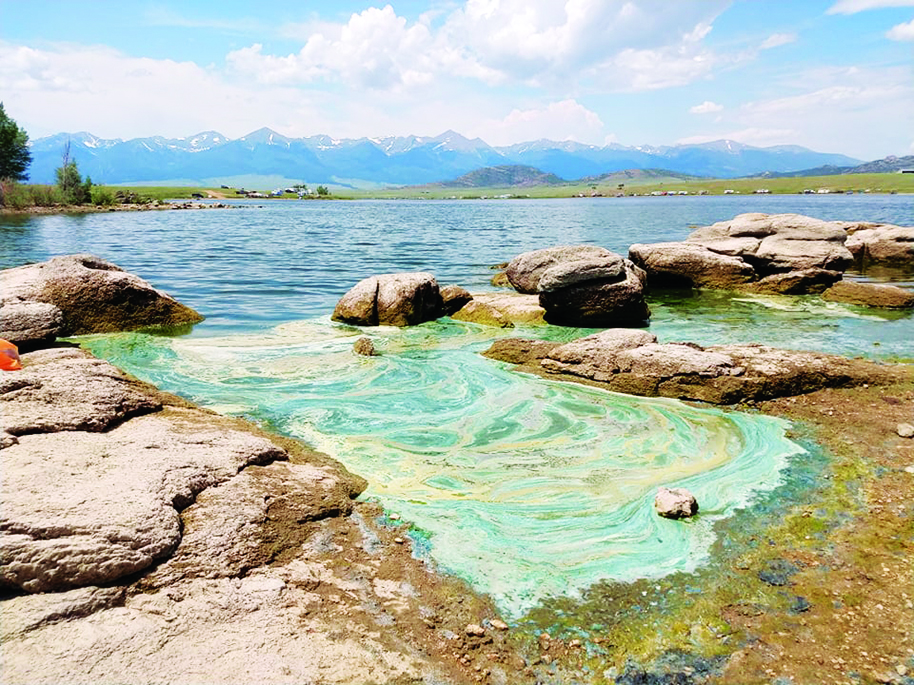(Photo of algae at Lake DeWeese in 2021)
Colorado Parks and Wildlife (CPW) will host a public meeting to address concerns about recurring toxic algae blooms each summer at DeWeese Reservoir and the agency’s response.
The meeting is scheduled at 5:30 p.m., Tuesday, February 13, at the West Custer County Library, 218 Main St.
Toxic algae blooms have become a seasonal problem at DeWeese. “When toxin levels reach or exceed the specified threshold, CPW must close the reservoir to all water-related recreation that involves skin-to-water contact to protect human health,” said CPW Area Wildlife Manager Mike Brown. “The reservoir remains open to fishing, camping and wildlife viewing.”
The 90-minute meeting will feature CPW staff, including Brown, Ashley Rust, a CPW water quality and monitoring specialist, aquatic biologist Carrie Tucker, senior aquatic biologist Paul Foutz, and Justin Krall, CPW’s wildlife officer for the region.

Rust will give a presentation on toxic algae and describe how CPW’s toxic algae monitoring program is designed to keep people and pets safe.
Algae blooms are common when temperatures rise, usually in late summer. CPW monitors the reservoir closely, taking weekly water samples during the summer months to check for elevated toxicity.
The popular fishing reservoir is part of DeWeese Reservoir State Wildlife Area (SWA), a 300-acre property near Westcliffe. The SWA also offers picnicking, hiking, wildlife viewing, and camping.
Algae are an important part of aquatic food webs, but some types of blue-green algae can produce toxins that may cause negative health impacts for humans and pets at elevated concentrations. Currently, there is no method to remove toxins from lakes.
The public can help reduce the occurrence of blue-green algae blooms by preventing nutrients (nitrogen and phosphorus) from entering waterways through responsible use of fertilizers, picking up pet waste, and avoiding using de-icers that contain urea.
– Press release by the Colorado Department of Parks and Wildlife


